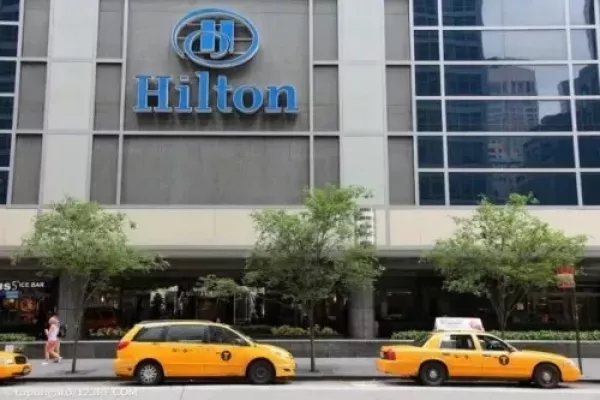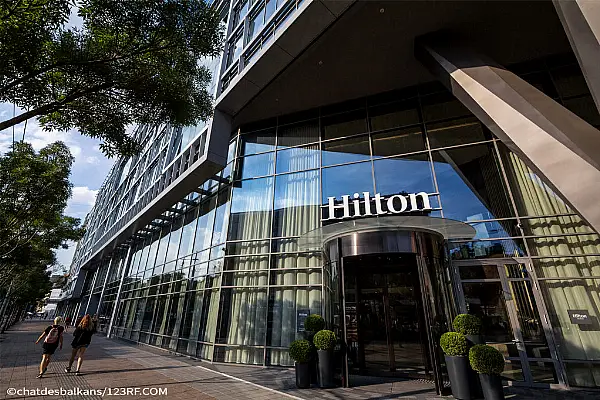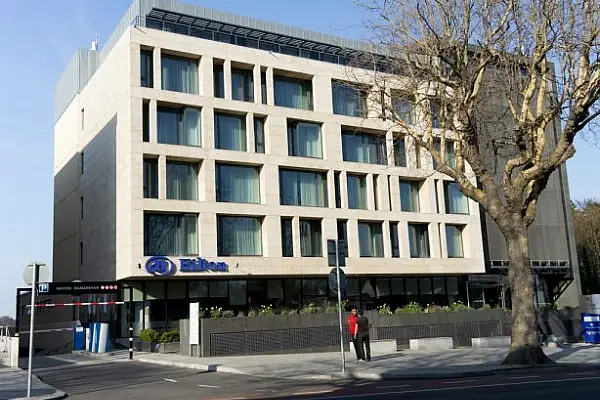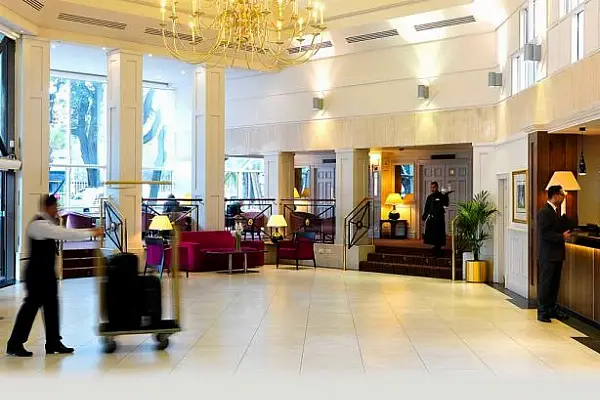Hilton Worldwide Holdings beat Wall Street estimates for second-quarter revenue on Wednesday 26 July, as record lodging prices and rebounding corporate and summer travel demand boosted results.
Details
Hotel companies have seen demand plateau in the United States after benefiting in recent quarters from elevated domestic bookings as consumers used remote work as an excuse to travel. But with international travel rising, Hilton is facing increased competition as it has a smaller footprint abroad compared with its competitors.
Shares of the company were flat in pre-market trading on Wednesday 26 July. The stock has gained 19% so far this year.
The company's revenue per available room, or RevPAR, an important metric in the hospitality industry, rose 12% in the quarter from a year earlier.
"System-wide comparable RevPAR continued to expand throughout the quarter, experiencing growth across all of our customer segments and regions, driven by strong preference for our brands," CEO Christopher Nassetta said.
Second-quarter revenue rose to $2.66 billion, exceeding the average Wall Street estimate of $2.57 billion, according to Refinitiv.
Average daily hotel rates were up about 18% in the second quarter from the same period in 2019, before the pandemic, according to analytics firm CoStar.
US hotel demand has been below pre-pandemic levels for four consecutive months, falling 2% in June year-over-year. Hilton's business is more exposed to the United States and North America when compared to competitor Marriott.
Additional Information
The company lifted its annual outlook again after boosting its annual profit outlook in the first quarter. It now expects full-year adjusted profit between $5.93 and $6.06 per share, compared with its prior forecast of $5.68 to $5.88 per share.
The above news was followed by the following update:
UPDATE 5-Hilton Beats Q2 Estimates On Strong Travel Demand
Hilton Worldwide Holdings beat Wall Street estimates for second-quarter revenue and earnings on Wednesday 26 July and lifted its annual outlook again, as record lodging prices and rebounding travel demand boosted results.
US hotel operators like Hilton are benefiting from a rebound in international travel post-pandemic despite domestic demand faltering as US travellers take advantage of a stronger dollar and vacation in Europe.
Shares fell 1.4% in afternoon trading on Wednesday 26 July. The stock has gained about 17.5% this year.
The company's revenue per available room, or RevPAR, an important metric in the hospitality industry, rose about 12% in the quarter from a year earlier.
Second-quarter revenue rose about 19% to $2.66 billion, exceeding the average Wall Street estimate of $2.58 billion, according to Refinitiv. Adjusted earnings of $1.63 were above average estimates of $1.58 per share.
Hilton said it now expects full-year adjusted profit between $5.93 and $6.06 per share, compared with its prior forecast of $5.68 to $5.88 per share.
"There's still huge amounts of pent-up demand that haven't been released," CEO Christopher Nassetta said.
US hotel demand has been below pre-pandemic levels for four consecutive months. About 69% of Hilton's rooms are in the US and North America, according to Kate Xiao, Bernstein research associate.
Hilton downgraded its net unit growth (NUG) - which reflects room additions - guidance from 5-5.5% to approximately 5% for the full year.
It posted record adjusted EBITDA of $811 million, exceeding the average estimate by 3%, according to Refinitiv.
But the 3% beat on EBITDA "is below the norm for Hilton to be honest, and (the) NUG downgrade plays into fears of a slowing development environment," said Richard Clarke, Bernstein hotel and online travel agency equity analyst.
Higher interest rates and an uncertain demand outlook have slowed construction for larger hotel companies, Clarke said in a research note in July.
Read More: Hilton Signals Travel Demand Recovery May Hit Inflation Wall Soon
News by Reuters, edited by Hospitality Ireland. Click subscribe to sign up for the Hospitality Ireland print edition.









